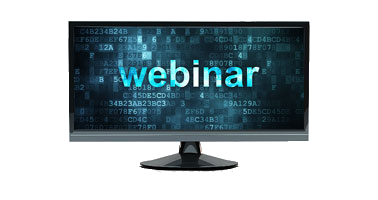How to Grow the Ford Service Network
“Who will service the Ford engine and transmission?” is a common question from transportation directors considering propane. We don’t want service questions to hinder your bus sales, so we’ve put together some proven tips to help you grow the local Ford service network.
 First, determine a Ford service location strategically located near one of your customers or customer prospects considering propane. Check their website, and find the phone number to the service department.
First, determine a Ford service location strategically located near one of your customers or customer prospects considering propane. Check their website, and find the phone number to the service department.
Gather the basics about your customer in preparation for the call; the name of the school district or contractor you’re working with; the number of propane buses in that fleet; the total fleet size (for potential future service needs); and whether the buses are Type C or Type A.
Next, determine what kind of service you’re asking them to perform. Do you need a Ford engine and transmission service location? Do you need someone to service the ROUSH CleanTech fuel system? Both?
Now it’s time to pick up the phone and call the service manager.
Usually it helps to explain why you’re calling to whomever answers the phone in the service department. That way, when you ask to speak to the service manager, they’ll actually send you to them instead of someone else.
 Lead with ‘Ford’ in your message, not propane. Explain that a customer in your area has Ford-powered Blue Bird buses, equipped with ROUSH CleanTech propane fuel systems on them, and you’d like to set the dealership up to perform maintenance work on (choose all that apply) the Ford engine, the Ford transmission, and/or the ROUSH CleanTech propane fuel system.
Lead with ‘Ford’ in your message, not propane. Explain that a customer in your area has Ford-powered Blue Bird buses, equipped with ROUSH CleanTech propane fuel systems on them, and you’d like to set the dealership up to perform maintenance work on (choose all that apply) the Ford engine, the Ford transmission, and/or the ROUSH CleanTech propane fuel system.
Explain that it’s a standard Ford 6.8L V10 engine and 6R140 transmission, the same engine and transmission that’s found in the Ford F-450, F-550, F-650, F-750, F-53 and F-59.
Expect them to ask questions. Typical ones include:
What does it cost for me to be a service center?
Answer: For most Ford dealers, it costs little to nothing. To service the Ford engine and transmission, they’re likely already set up with Ford. To service the ROUSH CleanTech fuel system, there is no cost to be a part of the program or for training. The only small cost a service center may incur is about $100 for special tools to work on the ROUSH CleanTech fuel system. You can find the list of special tools here.
Do we need to make facility modifications to our service center to work on propane vehicles?
Answer: For the most part, propane service facility requirements mimic what’s required to work on gasoline or diesel vehicles, so for most facilities the answer is “no.” To be sure, The Propane Education & Research Council put together a list of maintenance facility requirements. Aside from abiding by those guidelines, all you need are about $100 in special tools required to work on the propane fuel system
None of my technicians are trained to service propane vehicles.
Answer: No problem at all. ROUSH CleanTech offers web-based training for working on the propane fuel system at no cost. It takes approximately 2-3 hours to complete the basic training portion, which is the minimum requirement to work on our propane fuel systems. You can register for web-based training online, and upon completion, you can print a certificate. Ford offers training for the engine and transmission, but it’s likely that the Ford dealer’s service team is already trained.
How does warranty work?
Answer: ROUSH CleanTech covers the fuel system, Ford covers the engine and transmission, and Blue Bird covers the body and wiring. You can find a breakdown of coverage by component on pages 9-11 in our Limited Warranty and Policy Manual.
How do we get reimbursed for the work we perform?
Answer: For Ford warranty work, the Ford dealer will process a claim like they normally would. Ford ROUSH CleanTech warranty work, ROUSH has a warranty system that is similar to Ford’s, where it tracks all your warranty claims and they pay you directly. ROUSH CleanTech matches your Ford warranty labor rate and, because they know it’s a new fuel that you’re not always familiar working with, their warranty times are typically pretty generous. You can find ROUSH CleanTech’s service and labor times online.
After your conversation, point them toward our website, specifically the service section (ROUSHcleantech.com/service), so they can do their own research. If they still want to think about it after that, send them a follow-up email with both the ROUSH CleanTech and Blue Bird service manuals.
Once you get a verbal maybe or yes from the service manager, send an email that includes important information, like the registration link for web-based training, special service tools information, and online warranty system registration. Include our customer support line 800.59.ROUSH. We answer anytime between 8 a.m. and 8 p.m. Eastern.
If they agree to work on the Ford engine and transmission, congratulations! You’ve helped grow the Ford service network.
If they register at both links, and two technicians and one admin-level person complete the training, they’ll be considered a ROUSH CleanTech service location. Then we’ll add them to our dealer locator at no cost.
If you are having a tough time getting the Ford dealer on board, you can connect them with Brian Moss from Ford Component Sales. He can walk the dealership through the warranty process from Ford’s end on how to submit claims for engines and transmissions. Or contact your ROUSH CleanTech sales representative.
Good luck!














